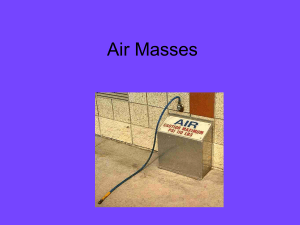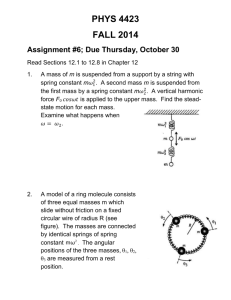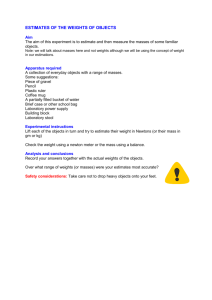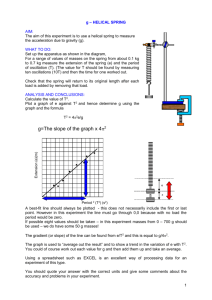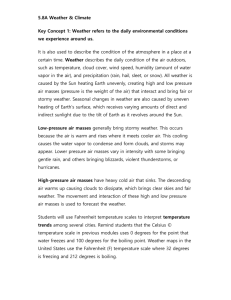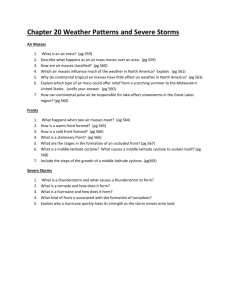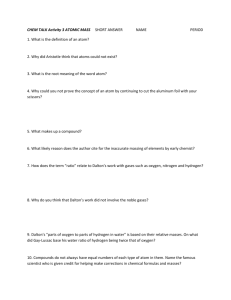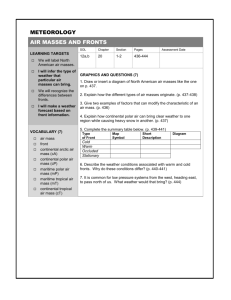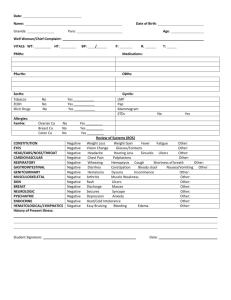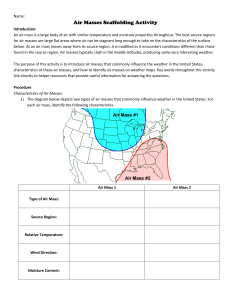topography clay
advertisement
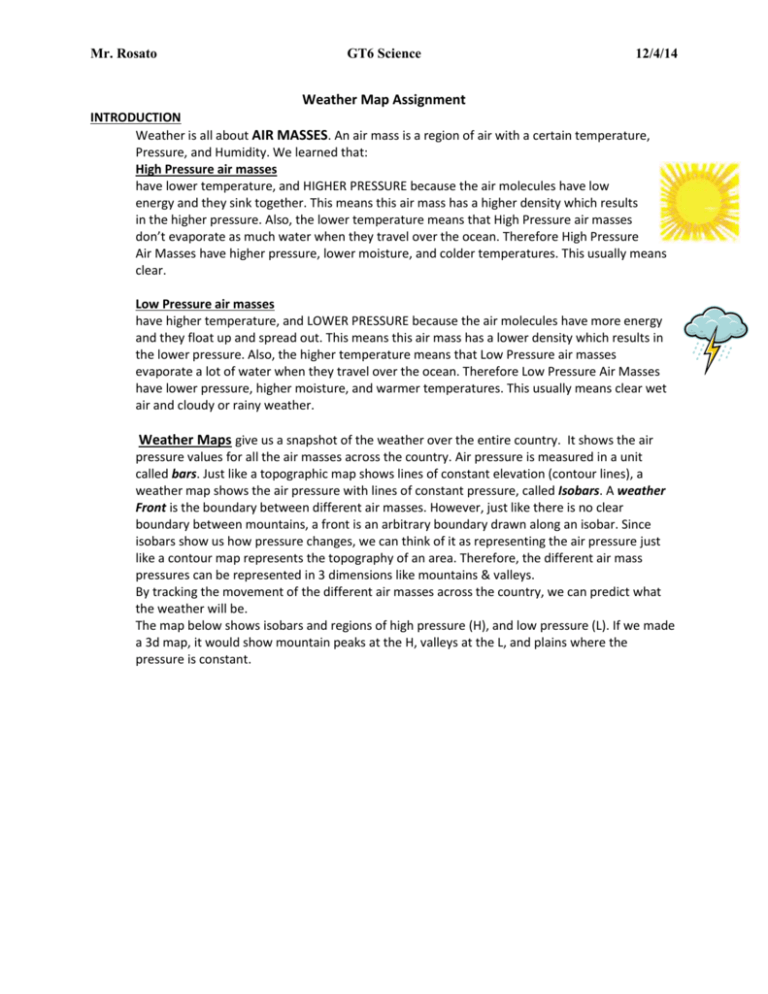
Mr. Rosato GT6 Science 12/4/14 Weather Map Assignment INTRODUCTION Weather is all about AIR MASSES. An air mass is a region of air with a certain temperature, Pressure, and Humidity. We learned that: High Pressure air masses have lower temperature, and HIGHER PRESSURE because the air molecules have low energy and they sink together. This means this air mass has a higher density which results in the higher pressure. Also, the lower temperature means that High Pressure air masses don’t evaporate as much water when they travel over the ocean. Therefore High Pressure Air Masses have higher pressure, lower moisture, and colder temperatures. This usually means clear. Low Pressure air masses have higher temperature, and LOWER PRESSURE because the air molecules have more energy and they float up and spread out. This means this air mass has a lower density which results in the lower pressure. Also, the higher temperature means that Low Pressure air masses evaporate a lot of water when they travel over the ocean. Therefore Low Pressure Air Masses have lower pressure, higher moisture, and warmer temperatures. This usually means clear wet air and cloudy or rainy weather. Weather Maps give us a snapshot of the weather over the entire country. It shows the air pressure values for all the air masses across the country. Air pressure is measured in a unit called bars. Just like a topographic map shows lines of constant elevation (contour lines), a weather map shows the air pressure with lines of constant pressure, called Isobars. A weather Front is the boundary between different air masses. However, just like there is no clear boundary between mountains, a front is an arbitrary boundary drawn along an isobar. Since isobars show us how pressure changes, we can think of it as representing the air pressure just like a contour map represents the topography of an area. Therefore, the different air mass pressures can be represented in 3 dimensions like mountains & valleys. By tracking the movement of the different air masses across the country, we can predict what the weather will be. The map below shows isobars and regions of high pressure (H), and low pressure (L). If we made a 3d map, it would show mountain peaks at the H, valleys at the L, and plains where the pressure is constant. Mr. Rosato GT6 Science 12/4/14 Weather map websites: 1. Detailed Isobar US Weather Map: http://www.intellicast.com/National/Surface/Mixed.aspx 2. Accuweather Weather map Forecasts (show maps over several days): http://www.accuweather.com/en/us/national/weather-surface-maps 3d WEATHER MAP ASSIGNMENT We want to track the movement of air masses over this weekend and visualize how the air pressure moves, by making a 3d map of the US representing the pressure as terrain (e.g., mountains, valleys, plains) You will track the weather this weekend by making a 3d model in clay of the US weather maps. If you don’t have clay or Play dough, then you will draw a sketch of the pressure terrain over Idaho. USA Clay model instructions (extra credit): 1. Print a map of the US weather for one day over the weekend so it takes up about ½ page. 2. Cut it out 3. Paste it to a piece of cardboard 4. Build a clay model; representing the air pressure as terrain. 5. Show where the weather fronts are in your model Idaho Air Pressure sketch: H 1. Draw a sketch of what the air pressure terrain would look like over the state of Idaho. Show where the weather fronts are in L H your sketch. H 2. Do this for two days over the weekend Draw the best you can using the image here as an example of how to L sketch terrain: Front
